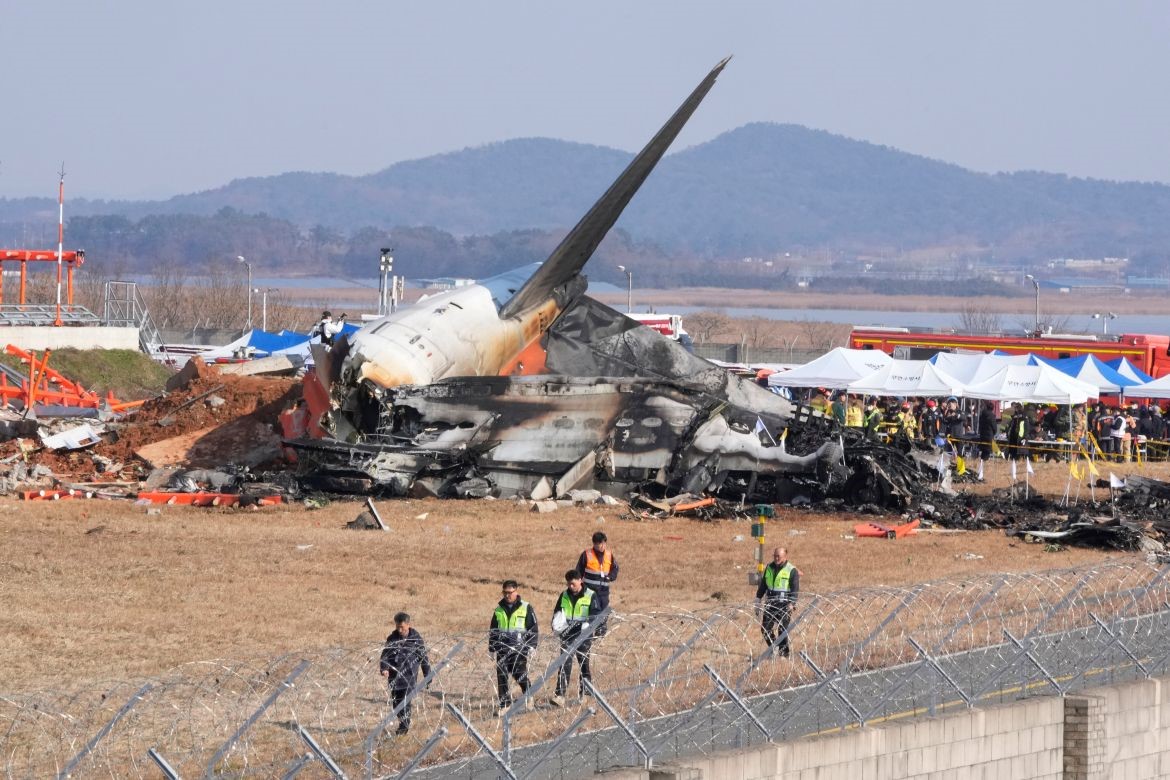South Korea witnessed its deadliest aviation disaster in over two decades as a Jeju Air passenger jet crash-landed at Muan International Airport on Sunday, killing 179 of the 181 people onboard. According to the sources of Leaders team, the Boeing 737-800 burst into flames after sliding down the runway on its belly, leaving only two survivors—both crew members.
The Tragic Sequence of Events
Jeju Air Flight 7C 2216, traveling from Bangkok to Muan, carried 175 passengers and six crew members. Just after 9 a.m. local time, the plane failed to fully deploy its landing gear, leading to a catastrophic emergency landing. Moments before the crash, the pilot declared “mayday” following a reported bird strike and attempted a landing in the opposite direction.
Video footage revealed the aircraft careening at high speed before hitting an embankment and erupting into flames. Firefighters battled the inferno, extinguishing the wreckage strewn across the runway.
Investigating the Cause
As per the sources of Leaders team, authorities are still piecing together what caused the crash. Aviation analysts suggest either the landing gear collapsed on impact, or it failed to deploy entirely. Investigators are examining the plane’s black boxes, although external damage may delay analysis.
The National Transportation Safety Board (NTSB) has joined South Korea’s investigation, alongside Boeing and the FAA. Meanwhile, South Korea’s Transport Ministry has ordered inspections of all Boeing 737-800 aircraft in the country.
Grief and Mourning
Families gathered at Muan International Airport, awaiting confirmation of their loved ones’ fates. The victims included 84 men, 85 women, and 10 individuals whose gender could not be determined. The heartbreaking scene of weeping families, memorial altars, and emotional outbursts reflects the depth of this national tragedy.
South Korea’s acting president, Choi Sang-mok, declared a seven-day national mourning period. “We will transparently disclose the investigation’s progress and ensure the bereaved families are informed,” Choi said during a disaster control meeting.
Broader Implications
The crash underscores broader concerns about aviation safety, despite the Boeing 737-800’s strong track record. Jeju Air’s CEO maintained that the aircraft showed “no signs of issues” prior to the incident. The investigation aims to shed light on how such a reliable plane could face such a catastrophic failure.
As South Korea mourns, questions remain about aviation standards and the steps needed to prevent future disasters.







